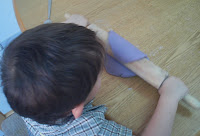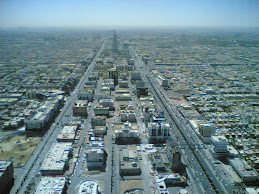بسم الله الرحمن الرحيم

Lately the religious police or ‘Mutawween’ have received significant press coverage. Not only are they are highly controversial figures, there is a certain amount of disdain felt for them. It is not my aim to discuss whether the role they perform in Saudi society is a good one or a bad one but would like to bring to the forefront the historical position of this ethical institution in Islam.
The most important of the ethical institutions in Islam is Ĥisba, from which todays Mutawwa is derived. Their intended role is to perform advisory services in modern society from an Islamic perspective.
Lexical root: حسب ĥasaba to calculate
Definition: Ĥisba حسبة is a meritorious action and is defined as endeavouring to acquire reward from Allah by the application of various forms of good in the right way, that is to say, the insistence of good and affirmation of what is right; the enjoining on others not to do a bad deed or neglect a good deed – fi sabilillah, for the sake of Allah, عز و جل.
Enjoining good and forbidding evil (or haram) is prescribed in the Holy Qur'an and is further advocated in the sayings of the Prophet, upon him be peace and from Umar, the second rightly guided caliph or successor to the leadership of the Islamic Ummah. From the following verse from the Qur’an and hadith which follows it can be deduced that ĥisba is incumbent upon Muslims whether that is physical or verbal ĥisba and where these cannot be achieved, the ĥisba of the heart.
Let there arise from you a group calling to all that is good, enjoining what is right and forbidding what is wrong. It is these who are successful."(Qur'an 3:104)
On the authority of Abu Sa’id al-Khudri, may Allah be please with him, the Prophet, peace be upon him said, “Whosoever of you sees an evil action let him change it with his hand; and if he is not able to do so then with his tongue; and if he is not able to do so then with his heart and that is the weakest of faith.” (Muslim)
‘Umar, may Allah be pleased with him, said, “Oh people, practise ĥisba in all your deeds, since any one of you who intended his actions to be ĥisba will have double reward.”
‘Umar, as well as enjoining ĥisba on others, practised ĥisba on himself and remonstrated on his own soul. He sought to humiliate himself when he was preaching and his soul felt above everyone else’s. It is said that his ring was inscribed with the words, “Death suffices as an admonition oh ‘Umar.”
According to 6th Century Hegira writer Al-Farrā’ there are different divisions of ĥisba:
1. Ĥisba or remonstration on the soul
2. Ĥisba of others categorised as follows: i) elders or superiors ii) equals iii) younger or inferior
It is generally accepted that we exercise number 1 and also number 2 in categories ii) and iii) provided that it does not lead the person to do greater evil. If we provoke someone or are rude the person may do something even worse or rebel. However, remonstration is obligatory on the person who has authority.
As for number 2, category i) (remonstrating on superiors or elders) – this is far more difficult...
How does one practise ĥisba on superiors without offending? Tact is obviously of key importance. Let us take as an example the two grandsons of the Prophet, peace be upon him, Hassan and Hussein. They once saw an old man performing wudu’ incorrectly. They knew that if they were not tactful he could either ignore them or thrash them. After much deliberation they devised a plan and went to the old man and said, “Oh uncle, tell us which one of us performs wudu’ the best.” They both stood before and carefully performed wudu’ whereupon he said, “Both of you do wudu’ better than me and I have learned a lot from you.”
Ĥisba as an institution
The muĥtasib is the person who applies ĥisba. This became an administrative post as well as being highly meritorious after approximately 200 years of Islamic state. The institution of Ĥisba was headed by the muĥtasib and controlled morals and ethics within society, such as the market place. Weights and measures would have been regularly checked to prevent fraudulent practices. The public highway was also checked as were health and hygiene. The responsibilities of the muĥtasib covered every aspect of day-to-day life; strictures/remonstrations were required to be made upon:
- The effeminate
- Teachers
- Those pretending to be poor
- Women and children
- Those selling food, drink and medicine
- Those who play
- Judges and their assistants
- Those who manage the graveyards
- Preachers in the mosques
- The person who makes an oath to anyone other than Allah
- Those who swear
- On relations between parents and children
- Relations between neighbours
- Those who expose themselves
- Travellers
- Ahl al-kitab (people of the book)
- Doctors (the Hippocratic oath was enforced)
- Chefs
- Marriage partners
It must be borne in mind however that for the muĥtasib certain ethical conditions must be fulfilled:
- That he does as he prescribes (i.e. ‘practise what you preach’)
- When he practises ĥisba, it should be intended to be a meritorious action, fi sabilillah
- He should enjoin out of knowledge and understanding of the laws of Islam.The Muĥtasib can remonstrate on others but he cannot jail him or flog him – these actions are for the courts. The muĥtasib must be kind, tender and patient.
Furthermore sincerity is vital:
When correcting the mistakes of others, it is essential that one’s intention be to earn the pleasure of Allaah, not to demonstrate one's superiority or to vent one’s anger or to impress others. 1
Al-Imam Abu Hamid Al-Ghazali had outlined TEN degrees of al-muhtasib's
actions. These should be applied gradually with great care and consideration.
- Seeking knowledge of the forbidden (Al-Monkar) without spying nor
forcingothers to solicit secret information. Here al-Muhtasib is not a
trespasser. - To inform the violator of the forbidden lest he/she is then ignorant about
the wrongdoing. The right to know is imperative before applying any punishment. - To forbid verbally, say, advising not to do.
- To obstruct the forbidden through preaching, advice and fearing
thepunishment of Allah (God). - To chide or to scold with strong wording, not vulgar, this may bepracticed
after Al-Muhtasib being a kind and discreet reminder. - To affect change manually, like forcing a man not to wear silly clothing,
orbreaking a jar of wine, or pulling the aggressor out of a house which is not
his... etc. The purpose here is to get rid of the forbidden physically. - Threatening with things may become worse in the near future, if the
aggressor is not reprimanded. - Applying physical punishment without using any weapon so as to avoid
anydamage or any bleeding. - To use suitable weapons indicating that serious actions that might
takeplace. - To enforce regulations by resorting to a cadre of police.
Although the above measures are carried out by Al-Muhtasib, he is required not to choose a stronger punishment unless a milder one is either ineffective or seems to carry no weight to the person already admonished. This is because al-Muhtasib operates in a system of checks and balances. His actions should not involve a greater mischief than the one he wants to forestall. 2
Let us end with a final anecdote. Nuri was a mystic in Islam (fl. 6th Century Hegira). He discovered that someone was shipping bottles of something suspicious, upon smashing one of the bottles he discovered that it was wine. He was then told that the wine belonged to the caliph. The muĥtasib proceeded to smash all but one of the bottles. When asked why he didn’t smash the last bottle he said because that would have been out of anger and vengeance for the caliph rather than for the sake of Allah.
For further reading on Islamic etiquette when correcting others please refer to the following online book: The Prophet’s Methods for correcting people’s mistakes






















.jpg)





